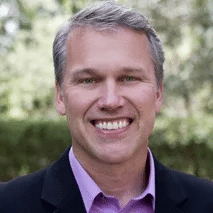This Article Covers
INTRODUCTION
In early 2010, the San Onofre Nuclear Generating Station (SONGS) began a Knowledge Transfer program to address three key problems at the site:
- Sixty per cent (60%) of on-site engineers are within 5 years of retirement
- With each retirement, 2-4 people change roles thru hiring, promotion and/or transfer.
- Unique knowledge was held by many engineers with inconsistent backups designated.
SONGS needed a methodical, measurable framework and program to address these time- sensitive needs, all in the context of the ACAD objectives.
Goals:
- Create a knowledge transfer framework that supports proactive, methodical, measurable on- the-job training.
- Prepare for the upcoming accreditation review audit to show how engineering training is evolving to ensure a capable, safe workforce in the future.
- Improve the time to bring a replacement engineer to full capacity by 50% from 3-5 years to 18 months.
KNOWLEDGE TRANSFER PROJECT
Strategy:
SONGS took an inventory of knowledge domains or “silos,” identified known experts for each silo, noted gaps revealed by the inventory, and then planned and trained employees to fill these gaps, all under the active and engaged management of supervisors.
Implementation:
Some 350 knowledge “silos” were uncovered and documented through a process of management discussion and employee interviews.
Once the silos were known, individual employees with silo expertise were designated “Peer Mentors” to encourage methodical development of skills with the Peer Mentor as a key training resource. (Figure 1)
In addition to identifying silo Peer Mentors, each silo was analyzed to determine associated risks, using such criteria as mission priority, current on-site expertise, retirement window (timeframe), difficulty in hiring expertise from outside, and overall skill complexity to allow time for ramp-up.
For each silo, a Master Skill Development plan was drafted which broke out the individual skills required to do the work in that silo, and for each employee a customized plan to learn these skills was written and documented in their Professional Development Plan. (Figure 2)
Training:
SONGS now understands what silos and skills are important, who is most competent to teach those skills and who needs to learn. Managers now have a measured process for holding individual employees accountable to act as mentors and for “apprentices” to take responsibility for their own training, and execute their professional development plans.
A Knowledge Transfer/Peer Mentoring training program was put in place to provide tools and processes to help the on-site experts transfer their knowledge. This training program was written specifically for engineers to turn what is traditionally seen as a “soft” skill into a step-by-step process that is simple to do, even with a busy schedule.
RESULTS
SONGS now has in place a Knowledge Silo Matrix populated with over 350 silos, tracking any gaps in knowledge and bench strength with individuals identified as learning the skills needed to close the gaps. The KSM also inventories every engineer on-site for a “dashboard” type view for both employees and managers to use in professional development.
Additionally, 45 measurable Skill Development Plans have been completed, with more than 80 currently in development.
Lastly, a professional program of Peer Mentoring is in place to ensure true knowledge transfer is taking place in a methodical way. According to a recently interviewed supervisor who went through the process, “It had been taking at least 3 years to get a new systems engineer up to speed. Using [the knowledge transfer process], the SONGS’s replacement systems engineer was working independently at 9 months and mentoring his own successor at 18 months.”
Other success stories from apprentices include this comment: “The mentoring training we were sent to really helped open up communication and define the goals and objectives of the mentorship. After the training, Gerry and I have been meeting every morning for 20 minutes up to 2 hours. He does not ask the questions that receive a ‘yes’ or ‘smile and nod’ response. He makes sure not to overload the ‘bucket’. If I am feeling overloaded, then I tell him so, and he readjusts the lesson plan to fit my needs.”
“I wish we would have done this months before Al retired. I thought I knew what his job was until we developed a plan. I had no idea that he did so much and now he is gone and I have so many more questions.”
Printable PDF of this case study
For more information on our Knowledge Transfer Solution, please contact us.
